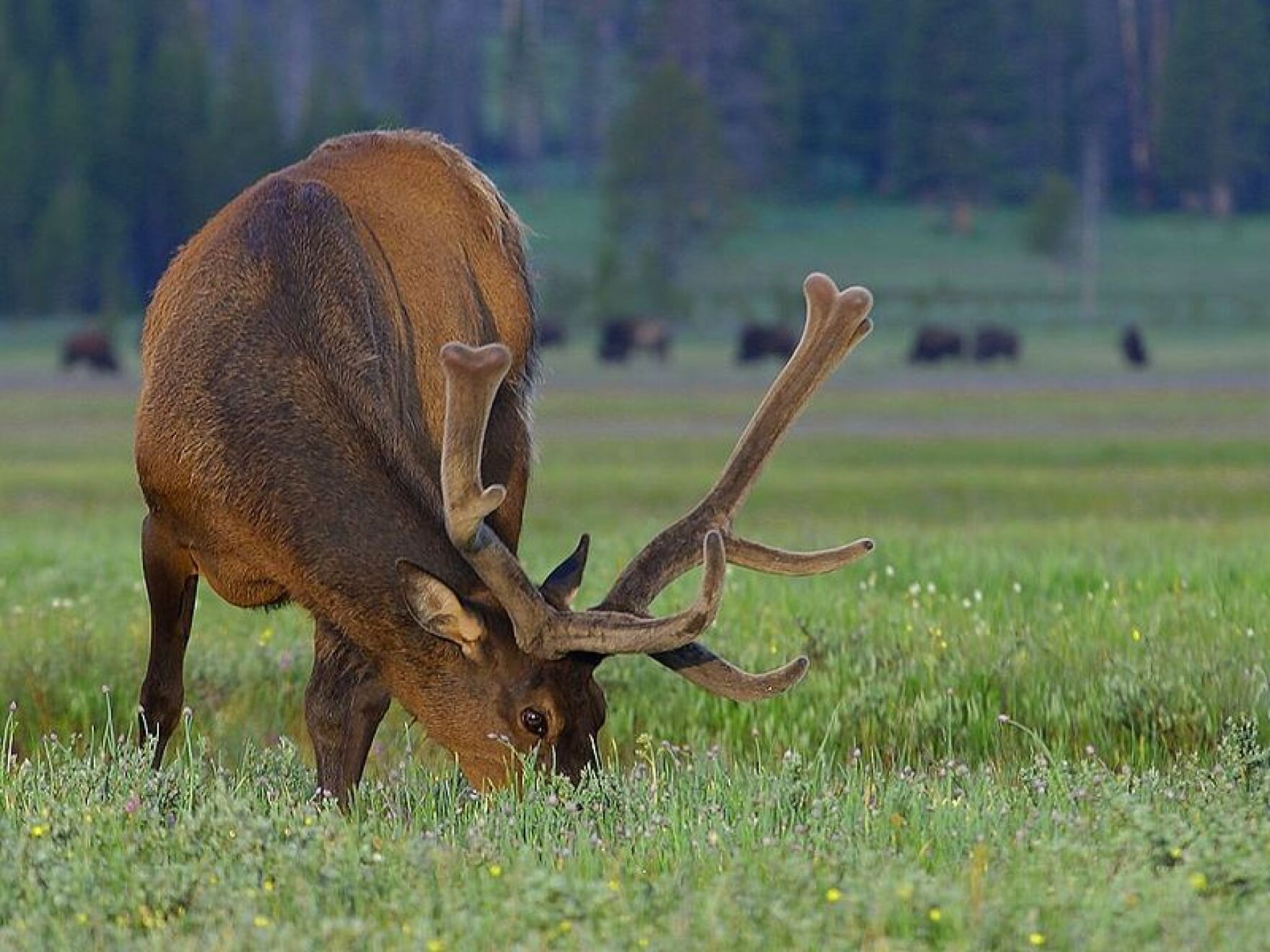In the House Tuesday, a bill to reintroduce elk to the state was passed and a bill allowing non-profit organizations a one-day permit to sell alcoholic beverages to fundraising events.
House Bill 2466 allows non-profit organizations the opportunity to purchase a one-day permit to sell wine, beer, or liquor produced at a licensed mini-distillery for a day event like a fundraiser. The permit would cost twenty-five dollars.
Delegate Tom Fast of Fayette County, opposed the bill, because he worried this kind of permit would allow drinking abuse and send the wrong message.
“I understand the intent,” Fast said, “but to just further advance the cause of alcohol, I’m not a prohibitionist, but to just further advance it in this fashion is actually a major step in the wrong direction. It’s just greasing the skids down the slippery slope all the more, and I urge rejection.”
Delegate Amy Summers of Taylor County supported the bill.
“I rise in support of this bill, not to encourage alcohol use, but to support a request from my community that has a lot of elimination dinners and different types of activities to raise funds in our small community for all kinds of projects,” Summers explained, “and they would just like to have one keg of beer there for people who choose to partake in that, so I encourage support.”
House Bill 2466 passed 82 to 15.
A bill that caused some debate on the House floor was a bill was House Bill 2515. This would reintroduce Elk to the state. The West Virginia Division of Natural Resources would be in charge of the reintroduction and restoration, and the Elk would be confined to counties in Southern West Virginia. For the next ten years, hunting wouldn’t be allowed until a population is established.
There were those who supported the bill.
“Friends, these elks, they’re a very timid animal,” Delegate Justin Marcum of Mingo County noted, “they don’t come down, they’re not going to come down and run into your car like you heard, they’re not like your deers, yeah there might be an accident here and there, but all in all, an elk is a timid animal. They like to hide, they like to be hid in the woods. So I want to clear up any issues there friends, this is a great bill that is going to just help the South. Let’s end, end the fight that we already, we already have a fight now down there trying to bring our jobs and employment back, and this is just another piece to the puzzle.”
“Rocky Mountain Elk Foundation has done studies; Southern West Virginia is the best location for this,” said Delegate Rupert Phillips of Logan County, “Virginia, Western Virginia already has a program. Eastern Kentucky has the program; has been very successful in both states. The state of Virginia has gave us a free holding pen that’s located in Logan County right now. Rocky Mountain Elk Foundation has gave us $70,000 to start the program up. In 2013, there were 63,000 permits at $10 apiece; just to apply for a permit; and by the way, non-refundable. Simple math; $630,000. They drew 900 permits, 810 state of Kentucky residents, 90 out of state. With all that being said, time the tourism, the hunting license, and the stamps and everything, brought a little bit over 2 million dollars to eastern Kentucky.”
And there were those who did not support the bill.
“I strongly urge rejection of this bill,” Delegate Tom Fast said, “I have heard from the Farm Bureau who opposes this bill. Deer are bad enough for our farmers, and they destroy crops, destroy hay fields. Elk would multiply that, maybe not immediately, but in time they would multiply that exponentially. You think a deer does damage to a fence, what do you think an elk will do to a fence? Also, I think it’s important to understand we have a problem with wild animals getting out on roads, and again, if you think a deer does damage to a car that may weigh, I don’t know 150 to 250 pounds, or 300 pounds, what about a thousand pound elk that gets on the highway. They don’t know boundaries.”
“An elk weighs between 600 and 750 pounds, fully grown. Now when you hit that with a car, you’re not just going to knock out a headlight, you’re going to do quite a bit of damage,” explained Delegate Roy Cooper of Summers County, “but even worse my friends, when you try to dodge that animal knowing how big it is, and you slam your car, or your little girl or boy slams their car into a tree to dodge that animal, you tell me whether that animal is worth $5,000 or not.”
House Bill 2515 passed 87 to 11.




















